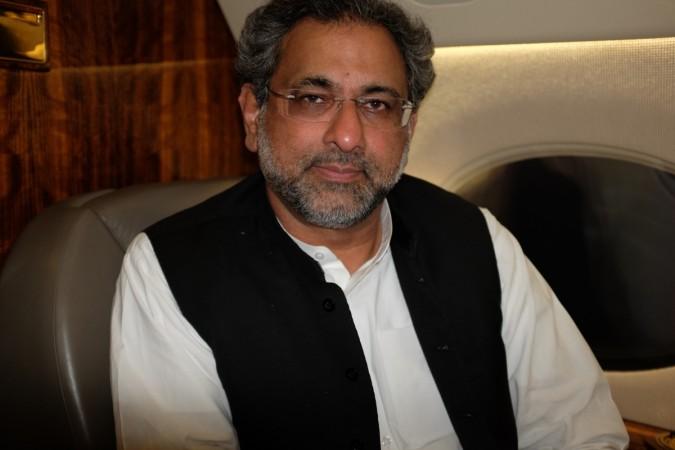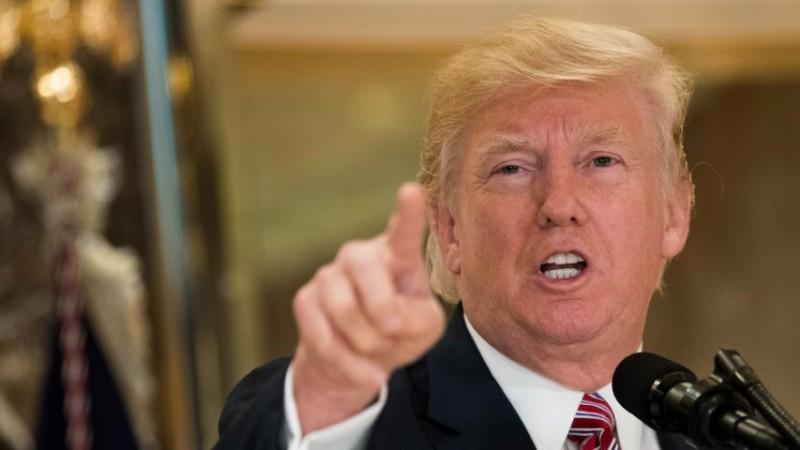
Shahid Khaqan Abbasi, who took over as Pakistan's 18th prime minister in 70 years after the ouster of Nawaz Sharif a few months ago, on Tuesday (September 19) met US Vice President Mike Pence on the sidelines of the UN General Assembly session. The meeting, which the Pakistani Foreign Secretary Tehmina Janjua side called an "ice-breaker" saw the two sides launching a process to rebuild a relationship which has been dented of late.
But does the meeting with the American vice president really count for Pakistan when the president himself has denounced Islamabad in harsh terms while laying down his policy on Afghanistan? Chairman of the Pakistani Senate Raza Rabbani has already raised the point saying President Donald Trump's refusal to meet the Pakistani PM in New York was "degrading" and that Pakistan has no point in meeting the vice president.
Abbasi also gave interviews to the western media in which he explained Pakistan's stance on issues of Afghanistan and deteriorating relations with the United States. He said Pakistan was worried more than anybody else on the situation in Afghanistan and that his government was ready to eliminate terrorism which has badly shaken the region.
Abbasi's denial takes Pakistan back to square one
But Abbasi's denial over Pakistan harbouring terrorists on its soil and the views of it providing safe havens to the extremists is just a "difference of opinion" ruin Islamabad's prospects of having good terms with the US even faster. The confusion caused by the voice of the prime minister, who is an inexperienced politician and termed "a manager at best" by Pakistan's own media, does Islamabad no favour as far as improving relations with Washington and ensure more aid.
Bashing India: The same old game of Pakistan
What's worse is Abbasi's calling India an "existential threat" for if an elected leader of Pakistan and not a military general or the chief of the ISI does so, it reflects how much stagnant Pakistan's foreign policy-making is in reality. Abbasi's predecessor Nawaz Sharif had tried time and again to assert Pakistan's pro-peace gesture but his own partyman now proves that all that is sham. For one who aspires to last long in the saddle of power in Pakistan, India-bashing is the only way forward. But Abbasi should have known that for things to get better on its western front, Islamabad has a onus to improve its ties with India.

The neither good nor bad prime minister in Abbasi is set to harm Pakistan's situation more for his words do not speak of any wisdom nor vision. He has been parroting the same-old position Pakistan has taken over the decades, eventually leaving it in a trap.
Abbasi tried his best to control the damage caused in its relationship with the US saying the Afghanistan crisis alone doesn't define Pakistan's terms with the US but it only showed that the man has a shortage of understanding of his country's foreign policy issues.
Afghanistan was always a key country in US-Pak relations
Afghanistan has always been a major issue defining the Pakistan-US relations – both the Cold War and post Cold-War period, irrespective of the nature of the conflict. And while Pakistan had bettered its prospects in the eyes of the US by helping its anti-Soviet plan in Afghanistan in the late 1970s and 1980s, this time, it has failed to live up to Washington's expectations in the same country, thanks to the India factor which has made it essential for Pakistan to back terrorists to disrupt New Delhi's prospects in Afghanistan. Through his interviews, Abbasi also has given an impression that Islamabad is eager to improve relations with the US for the sake of its economy.
Pakistan needs an able civilian leadership at the helm sooner to steer it clear of more mess in foreign policy affairs. Abbasi's meeting the US vice president is a humiliation for the country but while his words have left enough room for things to fall apart further.

















